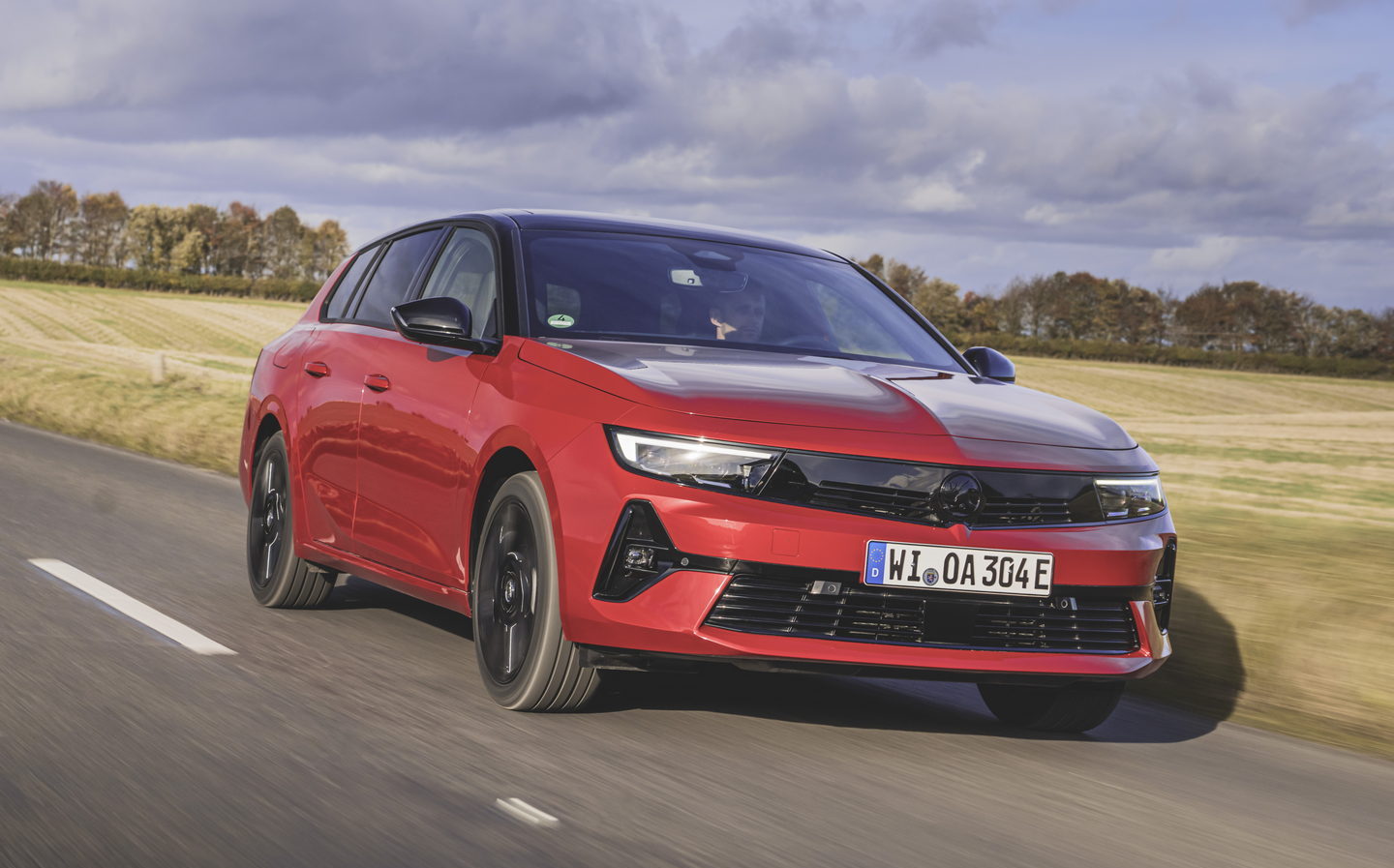Vauxhall Astra Sports Tourer Electric 2024 review: Clean-living estate has the manners, but at a cost
Tasty fusion but could make your eyes water
Like fusion food that shouldn’t really go together – Mexican sushi, for instance, or maybe trout a la crème dolloped into a big Yorkshire pudding and passed off as a long-served delicacy of Pontefract – the combination of an electric vehicle’s (EV) running gear with an estate body is something the automotive manufacturers have been reluctant to try.
Sure, Porsche got in early with both Cross Turismo and Sport Turismo versions of its sporty Taycan, while Chinese-owned British relic MG quickly saw a gap in the market and gave us the affordable MG5 back in 2020.
But these two are the exceptions to the rule rather than the norm. So while you can get any number of electric hatchback or big saloon or SUV, electric estates are much thinner on the ground.
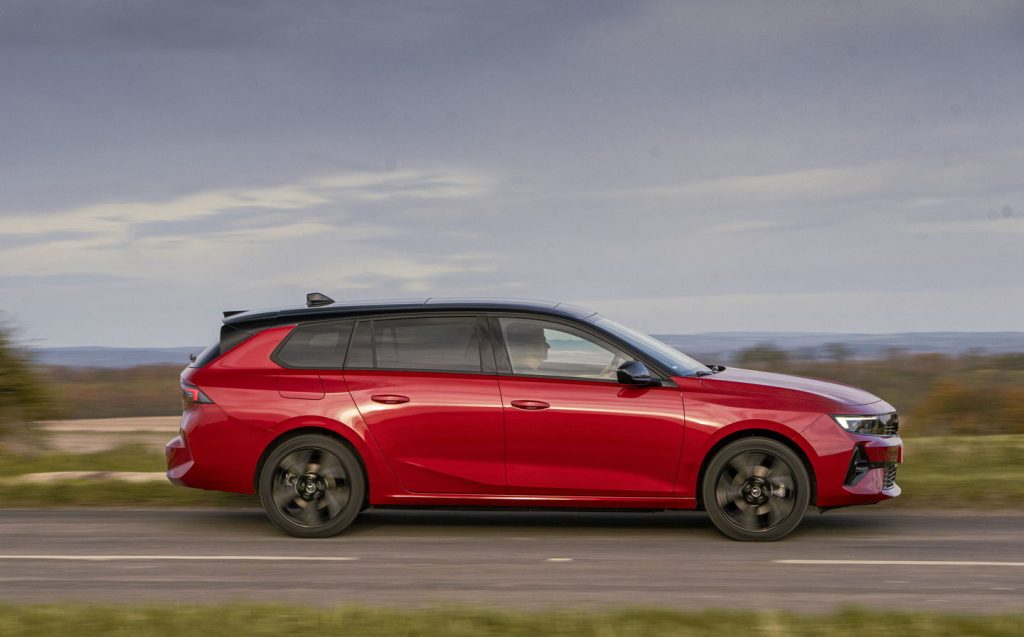
Stellantis to the rescue
That situation looks to be changing and one of the companies at the vanguard of this new zero-emissions wagon movement is Vauxhall.
Benefitting from its inclusion in the vast Stellantis conglomerate of car makers — which includes Peugeot, Citroen, DS, Fiat, Jeep, Alfa Romeo and yet more — it means Vauxhall has easy access to the building blocks of a serviceable EV.
And because Peugeot has managed an estate version of its electric e-308 hatchback, which is essentially the same underneath as the Astra Electric hatchback, we also get an estate version of the Vauxhall that goes under the Luton brand’s preferred nomenclature of Sports Tourer.
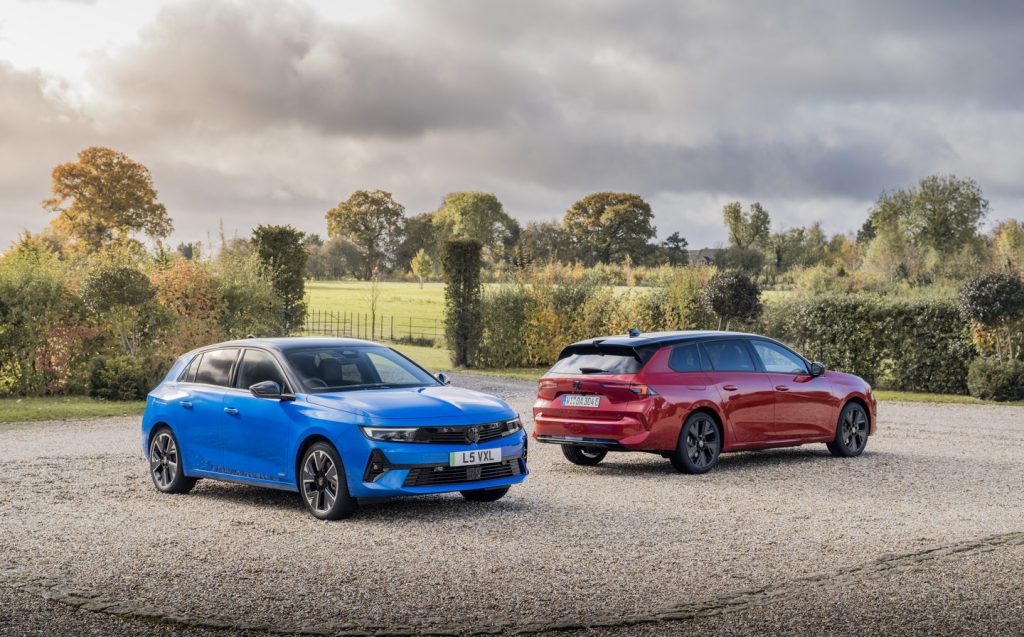
The two brands’ efforts all sit on the same underpinnings and the estate models use the same 115kW electric motor and 51kWh (usable capacity) battery pack as their less commodious relations.
Vauxhall says its electric estate will do up to 256 miles to a single charge, while it has enough performance to reach 62mph from rest in less than 10 seconds.
Vizor visage

The Astra Sports Tourer Electric, like other models in the wider Vauxhall range, will come in all three specifications of Design, GS and Ultimate. You’ll want to avoid the former, as the GS gives you luxuries such as adaptive cruise control, dual-zone climate, heated front seats and a 360-degree camera, among more.
In terms of the appearance, there are few qualms about the Sports Tourer’s lines. It’s both shorter and lower than the estate model it replaces in the Astra’s lineage, but it has a longer wheelbase (the distance between the front and rear wheels) so interior room is claimed to be better.
On the higher-grade GS and Ultimate cars, a contrast black roof gives the Vauxhall a touch of added definition, while the corporate “vizor” grille up front keeps the Astra’s design clean.
Overall, it’s got decent showroom and kerbside appeal.
Plain Jane cabin
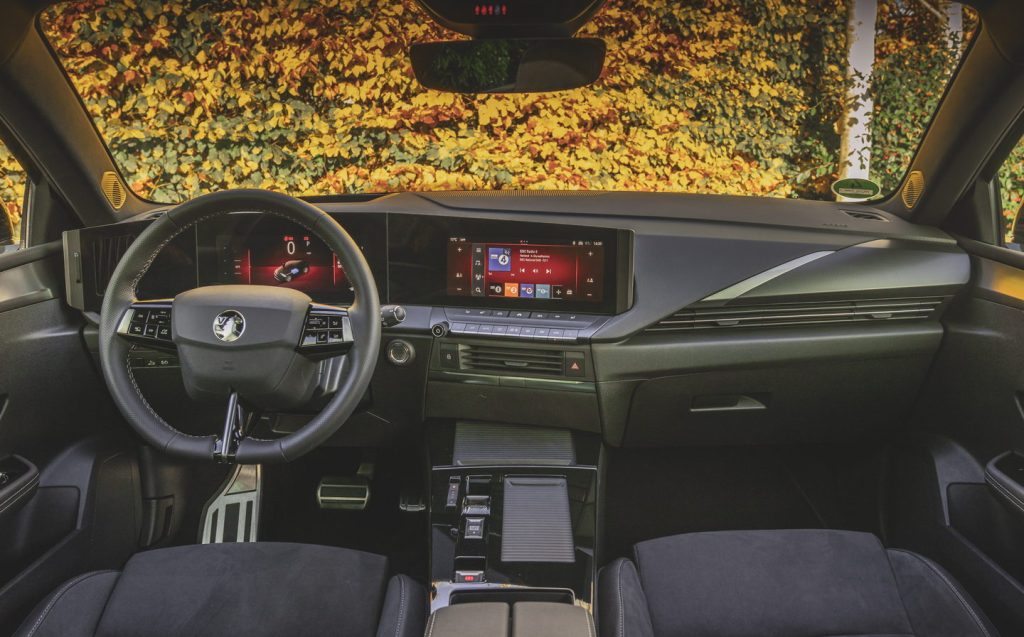
Inside, the report card isn’t quite as glowing. There are high points, of course: every model of Astra Sports Tourer gets the Pure Panel dashboard array, made up of twin 10in digital screens sitting alongside each other.
This is powered by something called a Qualcomm Snapdragon processor that makes the response times of the central infotainment touchscreen suitably rapid. There’s also wireless smartphone connectivity for both Apple and Android devices, so tech-heads should be more than happy.
But design aesthetes won’t. Crikey, the Astra’s cabin is incredibly plain to look at. The materials used are all fine but visually there’s nothing daring inside at all. It’s a sea of flat, dark-coloured surfaces wherever you look.
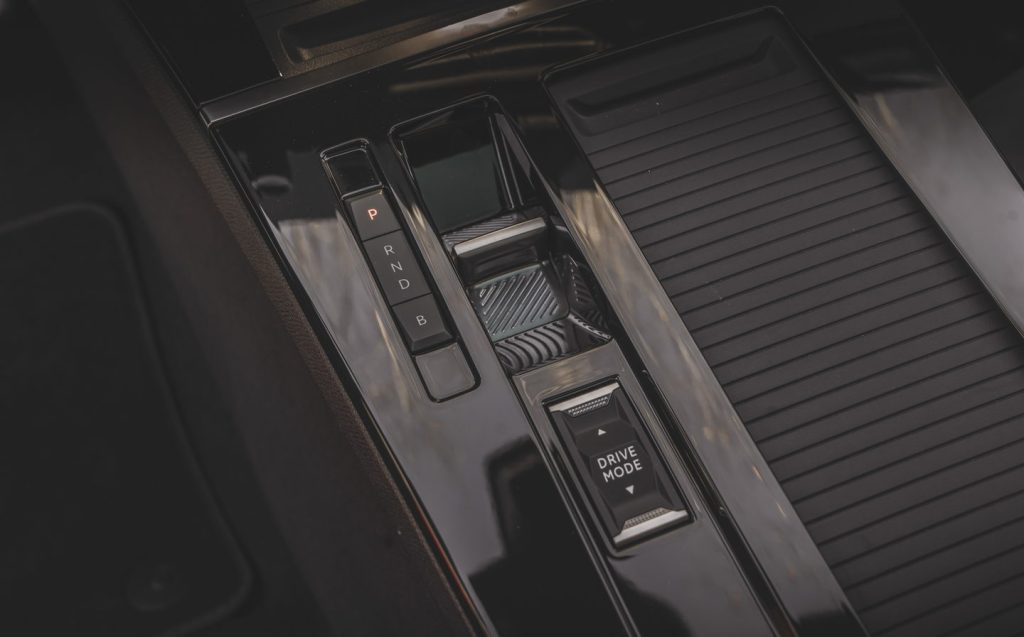
The issue here is that the related Peugeot e-308 SW has a far more interesting cockpit design than this. On the other hand, if you find modern car interiors too flashy, then the ultra-reserved Astra may actually be just the tonic.
At least the AGR-approved front seats are good and supportive, and will be comfortable for your back on long journeys. Practicality is also OK as well, with adequate rear-seat space for passengers and a decent 516-1,553-litre boot out the back.
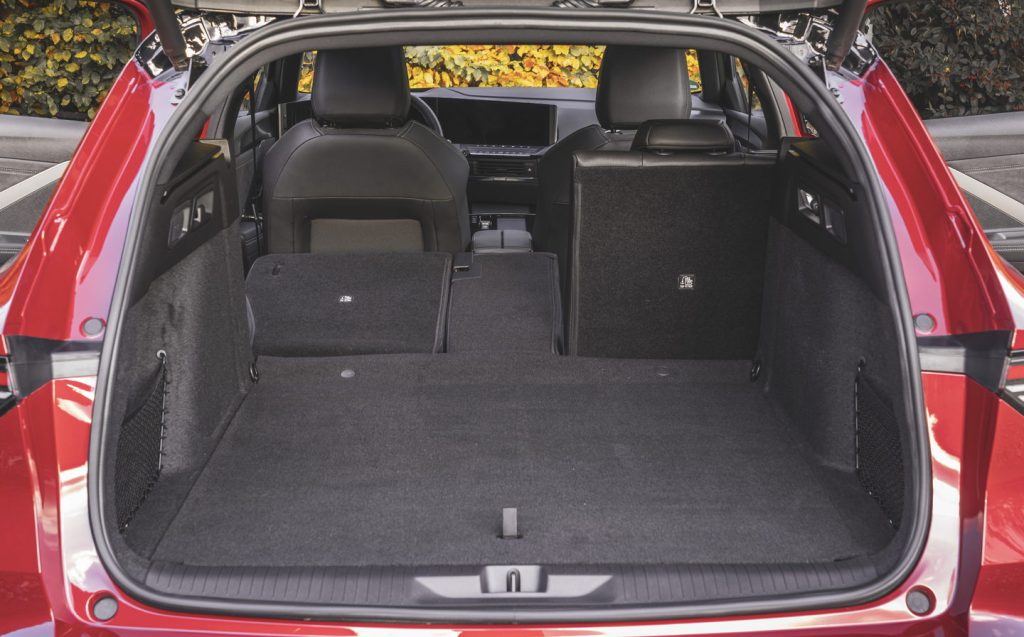
Saying that, the EV lags behind the petrol-engined versions of the Astra Sports Tourer, which gain another 81 litres of storage capacity.
Nice, but dim
To drive, the Astra Sports Tourer Electric is perfectly pleasant, if also utterly unremarkable. It seems to do most things with a high degree of polish but does nothing exceptional in the fun-to-drive stakes.
Part of the issue here is that this modest electric drivetrain is starting to reach the threshold of its propulsion limits in cars the size of the Astra.
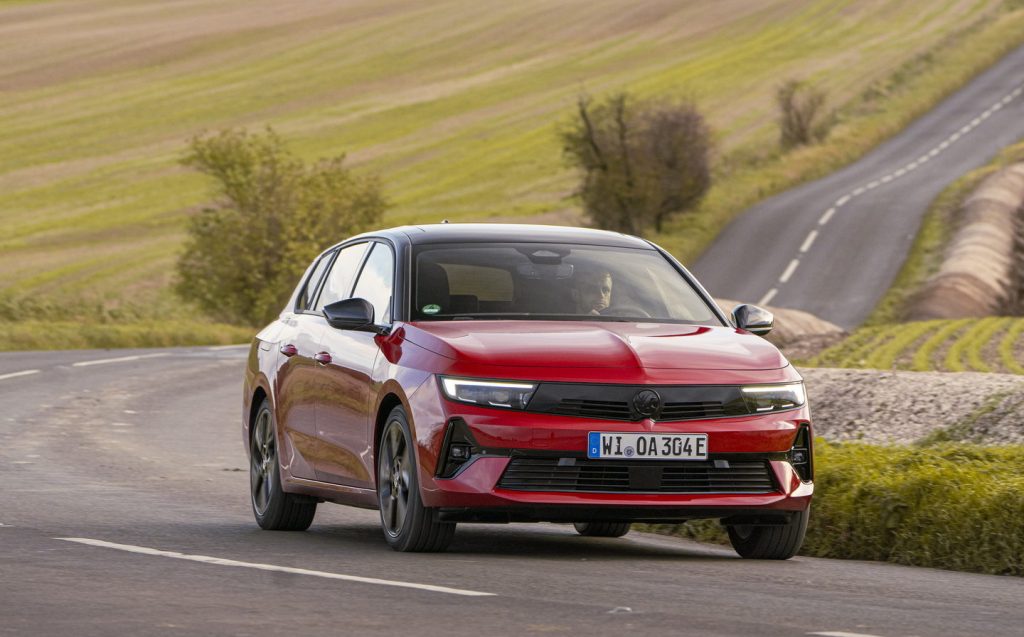
So while 154bhp might be OK for a smaller EV, such as a Corsa Electric for instance, it’s marginal whether it’s ample for the Sports Tourer — which clocks nearly 1.8 tonnes in this spec, making it more than 360kg heavier than any pure petrol-fuelled alternative in the Vauxhall estate’s range.
Yes, the powertrain has a touch more punch here than it does in smaller Stellantis EV applications, with torque rising to 199lb ft (from 192lb ft) but you won’t feel that on the road.
Because, in order to access the Astra’s maximum power and torque outputs, you have to put the car into Sport mode. It defaults to Normal every time you drive it, which means you’re down to 134bhp from the electric motor.
How many estate car owners are actually going to get into their car in the morning and reach for the Sport button before they set off, in order to get the advertised power figure?
And even in Sport mode, the Astra Sports Tourer Electric never feels fast. It’s acceptably swift and cultured, yes, but if you’re expecting a massive shove-in-the-back feel of loads of electric torque from the Astra, you’re better off looking elsewhere.
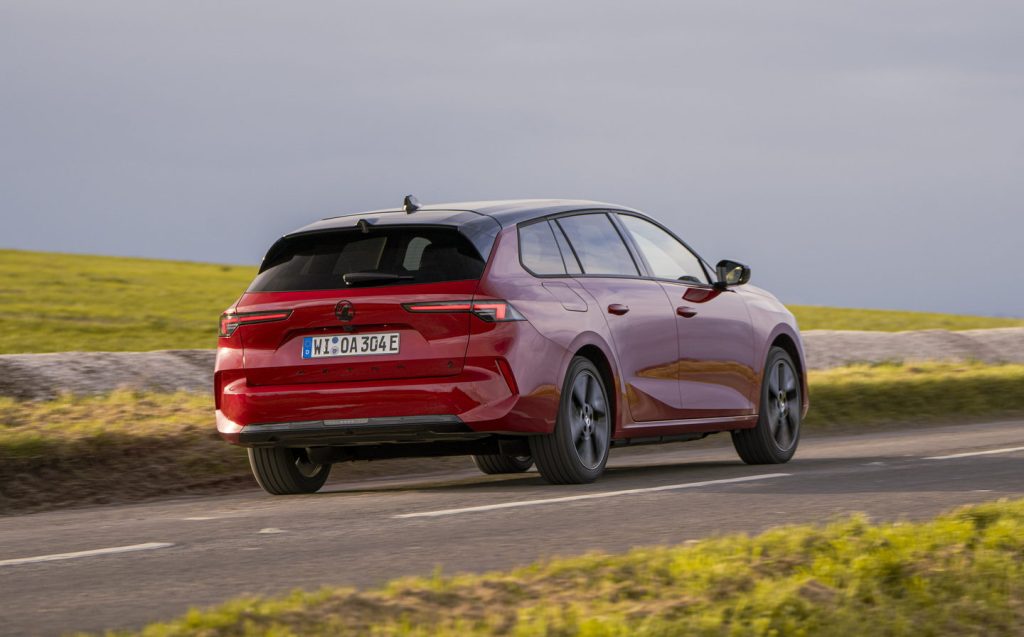
That said, it does nothing particularly wrong. The ride comfort is smooth, traction is decent in all conditions and the calibration of the Sports Tourer Electric’s major controls is well judged.
Visibility out is good in all directions, so placing it on the road is easy, and thus the Astra Sports Tourer Electric makes every drive into a simple, non-dramatic affair. You basically don’t have to think too much about anything while driving it. Just click it into D and go.
The elephant in the roomy boot
There’s something of a pachyderm loitering, though, and that’s the elephantine price of the Astra Sports Tourer Electric. Whereas petrol models start from £28,810, the Electric’s base ticket is a whopping £39,995.
That’s for a basic Design model with flat paint; stick metallic on there, or go for one of the other two specs, and you’ll be the wrong side of 40 grand before you know it.
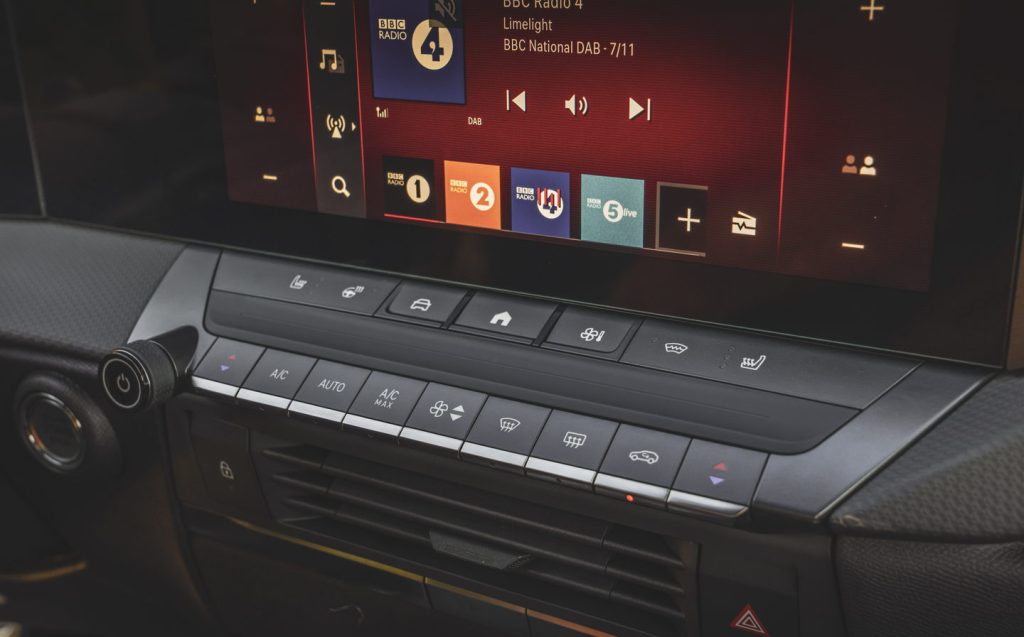
And when you’re driving around in an Ultimate-spec version, as pictured, that rocks in at a scarcely believable £46,160. At that level, it’s very hard not to start idly wondering to yourself what a proper long-range, premium EV might cost you. Something like a Tesla Model 3 or Polestar 2, for example.
Granted, Vauxhall makes a big play of the PCP deals and the lower running costs of the Sports Tourer Electric, citing the fact that if you charge it at home, overnight, at an electricity rate of about 8p/kWh, then with all things considered it won’t cost any more to finance or run than a petrol model across a period of four or five years.
But that’s not practicable for all owners, especially folk who don’t have a driveway. And if you have to resort to public charging, the electricity prices shoot up and the running-cost advantages of the Astra Electric dwindle away.
Whereupon you’re left answering the awkward question of “46 grand? For an Astra?!” and trying to justify why it’s worth consideration.
The rub
Taken in isolation the Astra Sports Tourer Electric looks good, it’s filling an electric body-type niche that desperately needs to be expanded, it drives in a discreet and assured fashion, and it’s widely available from the marque’s considerable UK network of dealers.
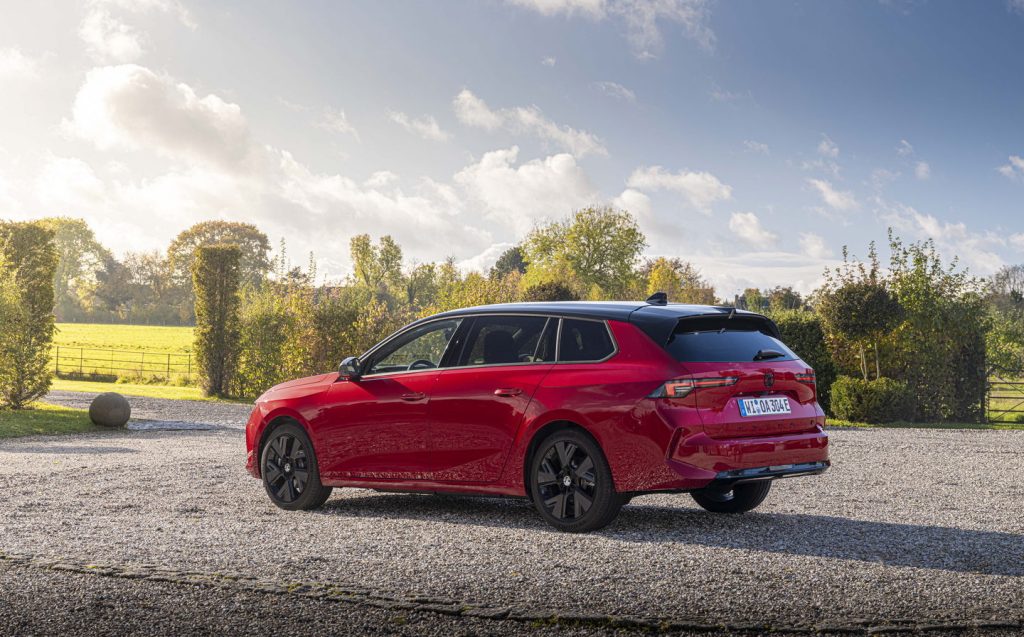
With its tax and company car incentives, plus the appeal of its large boot area, it’s likely to be a hit and balance the books for Vauxhall.
But as a private proposition? It’s less convincing. The Electric just doesn’t have the headline range figure or the sort of strong EV performance credentials that would convince vacillating buyers to opt for it over a petrol-powered Astra Sports Tourer.
And when you factor in the headline price figure, even if we talk monthly PCP figures or not, it’s simply going to be too big an obstacle for many potential customers to get over. Especially when a 319-mile Tesla Model 3 starts from less than £40,000 in the UK these days.
So while we commend Vauxhall for trying to get us to try a new (kind of) type of fusion food in the automotive world, as things stand the Astra Sports Tourer Electric isn’t quite a tasty enough confection for us to recommend it to you wholeheartedly. It needs to be cheaper to buy, or have longer range… or, preferably, a bit of both.
Related articles
- If you were interested in the new Vauxhall Astra Sports Tourer Electric, did you hear that Vauxhall announced GSe, a new performance electric sub-brand?
- Keen to go electric instead? Here are the top 10 longest-range electric cars
- Vauxhall to boost electric car on-street charging with data and funding for councils
Latest articles
- Lewis Hamilton wants to design a modern day Ferrari F40 with manual gearbox
- Dacia Bigster 2025 review: The ‘anti-premium’ family SUV that punches above its weight
- Your car’s worn tyres could be being burnt illegally in India, investigation reveals
- Open-top 214mph Aston Martin Vanquish Volante is world’s fastest blow-dry
- F1 2025 calendar and race reports: The new Formula One season as it happens
- Alfa Romeo Junior Ibrida 2025 review: Hybrid power adds an extra string to crossover’s bow
- Top 10 longest-range electric cars: all with over 400 miles per charge (officially)
- Renault 5 Turbo 3E ‘mini supercar’ confirmed with rear in-wheel motors producing 533bhp … and insane levels of torque
- British firm Longbow reveals ‘featherweight’ electric sports cars with 275-mile range


